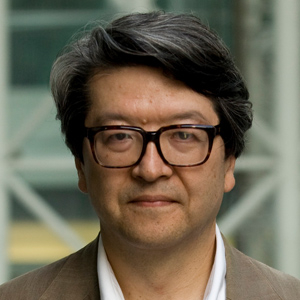What is speculation? In general terms, it means to conjecture without firm evidence, and in particular refers to the act of buying things, not for any return or utility arising from their use, but for the prospective gains to be had by selling them on to other people in the future. 1
When the division of labour has been once thoroughly established, it is but a very small part of a man's wants which the produce of his own labour can supply. He supplies the far greater part of them by exchanging that surplus part of the produce of his own labour, which is over and above his own consumption, for such parts of the produce of other men's labour as he has occasion for. Every man thus lives by exchanging, or becomes in some measure a merchant …. (Adam Smith, The Wealth of Nations , Book 1, Chap.4.)
As Adam Smith saw it in The Wealth of Nations , the capitalist economy is founded upon the division of labor. It is an economy in which producers produce commodities not for their own consumption but for sale to others, and in which consumers consume commodities not by producing them themselves but by purchasing them from others. The future’s not ours to see. Whenever producers start production, they must speculate as to the prices their products will fetch in the market. Likewise, whenever consumers prepare to buy something, they must speculate as to the price they will pay in the market. In a capitalist economy, every producer and every consumer thus becomes in some measure a speculator. And this is not all. Indeed, I will argue Chap.5 that in our capitalist economy everyone is a speculator in a much more fundamental sense.
If Milton Friedman were alive today, he would immediately interject that if people do not want to speculate, they can always hedge against their risks by buying futures contracts or insurance policies or other risk-diversifying instruments in the financial markets. 2
Finance originally meant the settlement ( finis ) of a debt, but it now implies a much wider range of activities, a majority of which provide people with opportunities to manage and diversify their risks. Indeed, one of the defining characteristics of capitalism is the transformation of everything of value into a commodity tradable in markets. As long as there are people, either natural or legal, who do not want to be exposed to risks, any contractual arrangement that enables them to shift their risks onto others becomes valuable and potentially tradable. When a legal document certifies that such an arrangement is made transferable from one party to another, it is called a financial security (or a financial instrument), and the market that buys and sells such securities becomes a financial market. Examples of financial markets include the markets for mutual funds, bonds, debentures, stocks, foreign currencies, futures, forwards, options, and swaps. For example, to buy a barrel of Brent Crude Oil futures is to buy in the present a barrel of oil to be delivered at a fixed date in the future. It allows the buyer to protect himself against the risk of future price changes in the spot market by paying a settled price in the present, usually at the expense of a certain risk premium. Financial markets thus allow producers and consumers to organize their risky activities efficiently, thereby contributing to the immense growth potential of the capitalist economy as a whole.
Notice, however, that in order for these producers and consumers to be able to avoid risk by buying futures and other financial securities, there must be someone else in the market who is willing to bear these risks by selling those financial securities. Financial markets can thus function only thanks to the participation of a large number of people who are prepared to take positions contrary to those of ordinary producers and consumers, in the hope of making large profits. They are professional speculators. In other words, we may define professional speculators as people, either natural or legal, who make a living by buying others’ risks.
1 According to the Compact Oxford English Dictionary, “speculate” means (1) to form a theory or conjecture without firm evidence, and (2) to invest in stocks, property, or other ventures in the hope of financial gain but with the risk of loss.
2 Milton Friedman, “The Case for Flexible Exchange Rates,” in Essays in Positive Economics , Chicago: University of Chicago Press, 1953.

